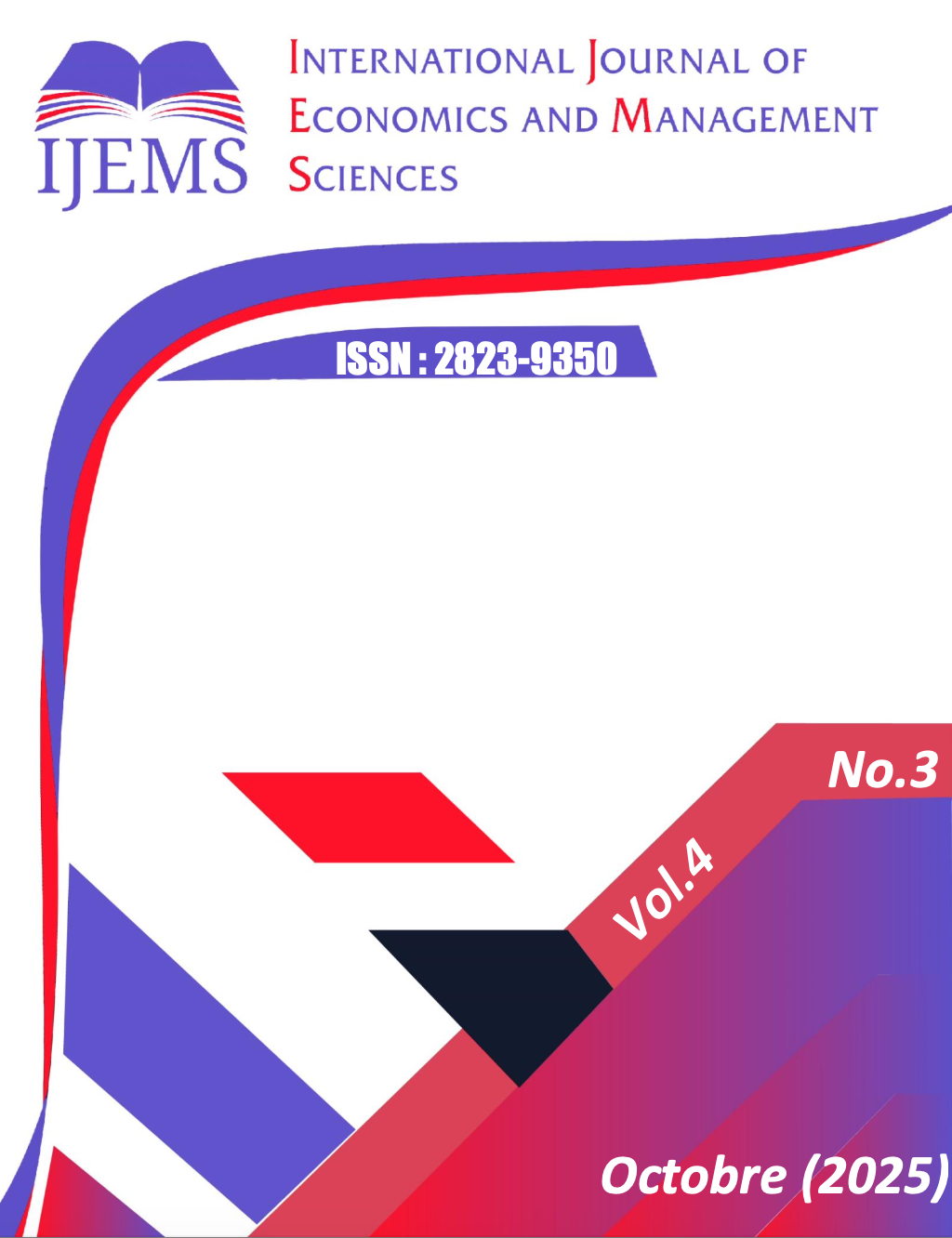L' intégration des enjeux Environnemental, Social et Gouvernance dans les pratiques de contrôle de gestion : cas du secteur aéronautique à Casablanca-Settat.
Keywords:
ESG, management control, sustainable performance, aerospace industry, Morocco, Casablanca-SettatAbstract
This article takes a closer look at how Environmental, Social, and Governance (ESG) criteria are being integrated into management control practices within aerospace companies operating in Morocco’s Casablanca-Settat region. The study relies on a quantitative approach, combining a structured questionnaire with documentary analysis, and was carried out across five representative firms: Safran Maroc, Bombardier Aéronautique Maroc, Stelia Aerospace Maroc, Aerolia Maroc, and Matis Aerospace.
The findings are not uniform across the three ESG pillars. The social pillar comes out strongest, with all companies (100%) reporting a significant level of integration. The environmental pillar follows closely behind, with 80% adoption, while governance clearly lags at 60%. Another interesting observation is that subsidiaries of multinational groups are ahead of local SMEs. This reflects both the weight of international regulations and the pressure to comply with global standards dictated by parent companies.
From a theoretical angle, this work adds to the growing literature on sustainability in emerging economies. It highlights how management control systems are more than just financial tools: they can act as strategic levers for embedding ESG practices. From a managerial standpoint, the research also points toward several avenues for improvement — notably strengthening governance, digitalizing management control instruments, offering targeted support for SMEs, and leveraging the social pillar as a foundation for reinforcing the environmental and governance dimensions.


















